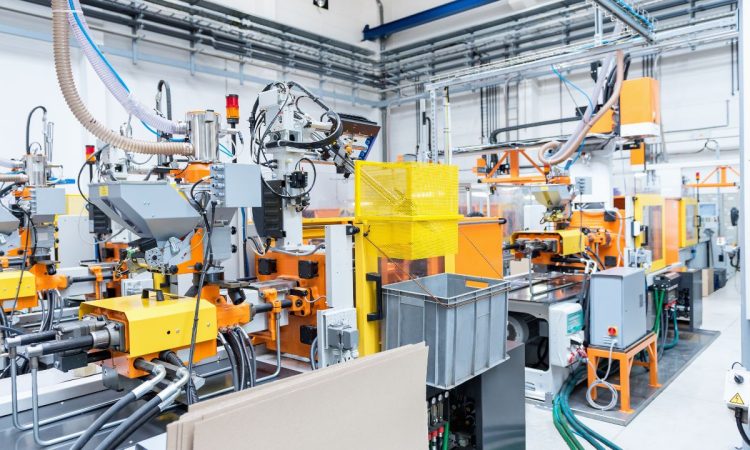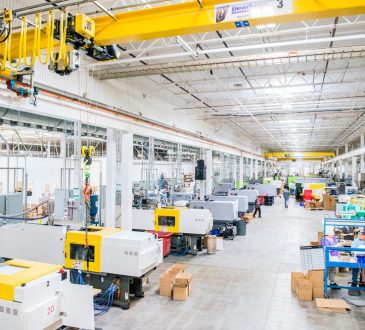
Manufacture is the backbone of modern industry, playing a pivotal role in the production of goods that drive the global economy. From small-scale workshops to massive industrial complexes, the concept of manufacture has evolved over centuries, incorporating advanced technologies, streamlined processes, and innovative practices that enhance efficiency and product quality. Understanding the depth and breadth of manufacture is essential for businesses, engineers, and industry enthusiasts who seek to stay competitive in an ever-changing market.
What is Manufacture?
Manufacture refers to the process of transforming raw materials, components, or parts into finished products that are ready for use or sale. It involves a combination of planning, designing, processing, and assembly to create items that meet specific standards and customer requirements. Manufacturing is not limited to large factories; it encompasses artisanal production, custom fabrication, and modern automated production lines.
Key characteristics of manufacture include:
- Systematic Processes: A defined sequence of steps to convert raw inputs into finished goods.
- Consistency: Ensuring uniformity in product quality and specifications.
- Efficiency: Optimizing resources, labor, and materials to reduce production costs.
- Innovation: Applying technology and creative methods to improve products and processes.
Historical Evolution of Manufacture
The concept of manufacturing dates back to ancient civilizations where craftsmen produced tools, clothing, and household items by hand. However, the Industrial Revolution in the 18th and 19th centuries marked a dramatic shift. Mechanized production, powered by steam engines, led to mass manufacturing, enabling faster production rates and larger quantities of goods.
Over time, manufacturing evolved into:
- Craft-based Manufacture: Manual production by skilled workers.
- Assembly Line Production: Introduced by pioneers like Henry Ford, improving speed and efficiency.
- Automated Manufacture: Utilizing machines and robotics for precision and high-volume output.
- Smart Manufacturing: Integrating digital technologies, AI, and IoT for adaptive production systems.
Types of Manufacturing Processes
Manufacturing involves diverse processes tailored to specific industries and product requirements. Key types include:
1. Casting and Molding
- Casting: Molten material, such as metal, is poured into a mold to form a desired shape.
- Injection Molding: Common in plastics manufacturing, where heated plastic is injected into molds for consistent production.
2. Forming and Shaping
- Forging: Shaping metal using compressive forces.
- Rolling: Producing sheets, bars, or plates from raw metals through rollers.
- Extrusion: Forcing material through a die to create long objects of uniform cross-section.
3. Machining
- Turning, Drilling, Milling, and Grinding: Removing material from a workpiece to achieve precise dimensions.
- CNC Machining: Computer-controlled tools enhance accuracy and reduce human error.
4. Joining Processes
- Welding: Fusing materials together, commonly used in metals.
- Soldering and Brazing: Joining metals with filler materials at lower temperatures.
- Adhesive Bonding: Using industrial adhesives for non-metallic or composite materials.
5. Additive Manufacturing
- 3D Printing: Layer-by-layer fabrication that allows rapid prototyping and complex geometries.
- Rapid Prototyping: Reducing development time for new products.
Importance of Manufacturing in the Economy
Manufacturing plays a critical role in global and local economies:
- Employment Generation: Factories and plants provide millions of jobs worldwide.
- Innovation Driver: Manufacturing fosters research and development, leading to new technologies.
- Export and Trade: Manufactured goods contribute significantly to international trade.
- Industrial Growth: Encourages infrastructure development and investment in technology.
Countries with strong manufacturing sectors often enjoy economic stability and higher GDP contributions. Industries like automotive, electronics, textiles, aerospace, and consumer goods rely heavily on efficient manufacturing practices.
Modern Trends in Manufacture
The manufacturing industry has embraced significant changes in the past decade. Some of the most impactful trends include:
1. Automation and Robotics
Automated production lines reduce human error, increase productivity, and ensure safety in hazardous environments. Robotics plays a crucial role in repetitive tasks, material handling, and precision assembly.
2. Sustainable Manufacturing
With growing environmental concerns, manufacturers focus on reducing waste, minimizing energy consumption, and using eco-friendly materials. Circular economy principles, including recycling and reusing materials, are increasingly adopted.
3. Digital Manufacturing and Industry 4.0
- IoT Integration: Sensors and connected devices allow real-time monitoring and predictive maintenance.
- Data Analytics: Enables informed decision-making and process optimization.
- Artificial Intelligence: Enhances automation, quality control, and adaptive production.
4. Customization and Flexibility
Consumers demand personalized products, and manufacturers respond with flexible production systems capable of small-batch and custom orders without compromising efficiency.
5. Global Supply Chain Integration
Modern manufacturing relies on complex, interconnected supply chains. Efficient coordination of raw materials, production, and distribution is critical to meet market demands.
Challenges Faced by the Manufacturing Industry
Despite advancements, the industry faces several challenges:
- Rising Costs: Raw materials, labor, and energy costs affect profitability.
- Skilled Workforce Shortage: Advanced manufacturing requires trained personnel for machine operation, maintenance, and quality assurance.
- Global Competition: Manufacturers face intense competition from emerging economies offering low-cost production.
- Regulatory Compliance: Adhering to environmental, safety, and labor regulations can increase operational complexity.
Manufacturing Best Practices
To succeed in modern manufacturing, businesses adopt best practices that enhance efficiency and product quality:
- Lean Manufacturing: Eliminating waste and improving process flow.
- Six Sigma: Data-driven approach to reduce defects and variability.
- Preventive Maintenance: Ensuring machinery operates smoothly to avoid downtime.
- Supply Chain Optimization: Streamlined logistics to reduce delays and costs.
- Continuous Improvement: Encouraging feedback and innovation at every stage.
Conclusion
Manufacture remains a cornerstone of global development, driving technological innovation, economic growth, and societal advancement. From ancient craftsmanship to modern Industry 4.0 systems, manufacturing continues to evolve, adapting to technological trends, market demands, and environmental concerns. Businesses that embrace automation, digital integration, sustainability, and efficient production techniques are well-positioned to succeed in a competitive global marketplace. Understanding the intricacies of manufacture is crucial for decision-makers, engineers, and entrepreneurs seeking to contribute to a robust and future-ready industry.
FAQs on Manufacture
1. What is the difference between manufacturing and production?
Manufacturing typically involves converting raw materials into finished goods through processes, often using machinery. Production is a broader term that includes manufacturing but also encompasses services and other forms of output.
2. How has Industry 4.0 influenced modern manufacturing?
Industry 4.0 integrates digital technologies like IoT, AI, and data analytics into manufacturing, allowing smarter, more efficient, and adaptive production systems.
3. What are the most common materials used in manufacturing?
Manufacturing utilizes metals (steel, aluminum), plastics, composites, ceramics, and increasingly, sustainable materials like recycled plastics and bio-based compounds.
4. Why is lean manufacturing important?
Lean manufacturing reduces waste, improves efficiency, lowers costs, and enhances product quality, making it essential for competitive operations.
5. What role does automation play in manufacturing?
Automation enhances productivity, reduces human error, ensures consistent quality, and improves worker safety in various manufacturing processes.
6. Can small businesses benefit from manufacturing trends?
Yes, small businesses can adopt flexible, digital, and sustainable manufacturing solutions to compete with larger enterprises and cater to niche markets.
7. What is the future of manufacturing?
The future focuses on smart factories, AI-driven processes, additive manufacturing, sustainability, and global supply chain integration to meet evolving market and environmental demands.




